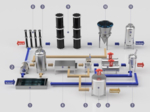-
Wasser 3.0: #detect|remove|reuse - 31/10/2023
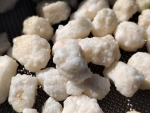
We all pollute our water with things we use in our everyday lives. In the process, microplastics and micropollutants accumulate in sometimes significant quantities and are difficult to remove. This has increasingly devastating consequences for our health and the environment. Wasser 3.0, a non-profit start-up from Karlsruhe, has declared war on this problem by developing a customisable process to detect, remove and even recycle these pollutants.
https://www.biooekonomie-bw.de/en/articles/news/how-sustainably-remove-and-recycle-microplastics-water
-
-
-
-
-
Innovative materials - 14/06/2023

Conserving wood by producing furniture and other objects from wood-based materials with the help of microorganisms? That is exactly what a team of researchers from the University of Freiburg and the Leibniz Institute for New Materials (INM) in Saarbrücken is working on in the DELIVER project. The aim is to create a database of materials with a broad range of controllable properties for various applications that can be produced from wood waste.
https://www.biooekonomie-bw.de/en/articles/news/reinventing-wood-programmable-bacteria
-
3D-Thermocell project - 17/05/2023

Replacing plastic – for example in packaging – is not that easy but nevertheless urgently needed. In the 3D-Thermocell project, researchers at DHBW Karlsruhe are currently developing new plastic substitute products made of thermoformable paper as a renewable resource, which should be cheap and light and easy to dispose of along with waste paper. The characterisation and application of demonstration models will start soon.
https://www.biooekonomie-bw.de/en/articles/paper-instead-plastic-sustainable-packaging-good-conscience
-
-
Press release - 25/04/2023
Roboticists at the Max Planck Institute for Intelligent Systems in Stuttgart have developed a jellyfish-inspired underwater robot with which they hope one day to collect waste from the bottom of the ocean. The almost noise-free prototype can trap objects underneath its body without physical contact, thereby enabling safe interactions in delicate environments such as coral reefs. Jellyfish-Bot could become a tool for environmental remediation.
https://www.biooekonomie-bw.de/en/articles/pm/jellyfish-robots-could-one-day-clean-worlds-oceans
-
Press release - 21/04/2023
In collaboration with the project partners CG TEC, Cordenka, ElringKlinger, Fiber Engineering and Technikum Laubholz, the DITF are developing a new fiber composite material (CELLUN) with reinforcing fibers made of cellulose. The matrix of the material is a thermoplastic cellulose derivative. CELLUN made from renewable biopolymers enables the replacement of glass or carbon fibers in the production of industrial molded parts.
https://www.biooekonomie-bw.de/en/articles/pm/cellun-fiber-composite-made-biopolymers
-
Press release - 30/03/2023
Composite materials provide stability in aircraft parts, sports equipment, and everyday household items. However, most of these materials have a poor carbon footprint and are not naturally degradable. A more sustainable alternative has been developed by a team from the University of Stuttgart. This completely bio-based composite material is made of flax fibers and the biopolymer chitosan.
https://www.biooekonomie-bw.de/en/articles/pm/green-composite-material-made-flax-and-chitosan
-
-
Residual materials with potential - 16/03/2023
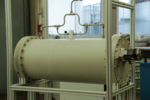
The objective of the PeePower™ BUGA 2023 collaborative research project is to produce green hydrogen and platform chemicals from wastewater. This fits in nicely with BUGA 2023’s (German National Garden Show) four major themes, namely, climate, energy, environment and food security.
https://www.biooekonomie-bw.de/en/articles/pm/peepower-energy-urine
-
-
-
-
-
Valorization of biological materials - 12/01/2023
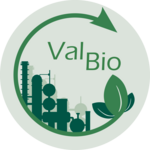
Reducing carbon dioxide emissions and the capture and utilization of CO2 are important steps towards achieving a climate-neutral and sustainable economy. Accordingly, as part of the ValBio-Urban research project, an interdisciplinary team from the University of Stuttgart is developing bioeconomic approaches to solutions that will be implemented with companies from Baden-Württemberg.
https://www.biooekonomie-bw.de/en/articles/news/valbio-urban-brings-bioeconomy-research-users
-
-
Project FuTuReS - 12/12/2022
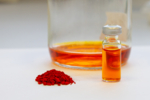
Algae are aquatic organisms that flourish in a huge variety of species. But that's not all: they are also small green mini-factories that can produce all kinds of valuable materials. All they need is water, light, CO2 and a few nutrients that can be recycled from biogas or sewage treatment plants. Researchers have now determined the optimal framework conditions and practicability of process methods for agricultural algae cultivation.
https://www.biooekonomie-bw.de/en/articles/news/microalgae-high-quality-products-domestic-agriculture
-
-
-
-
-
Website address: https://www.biooekonomie-bw.de/en/search







